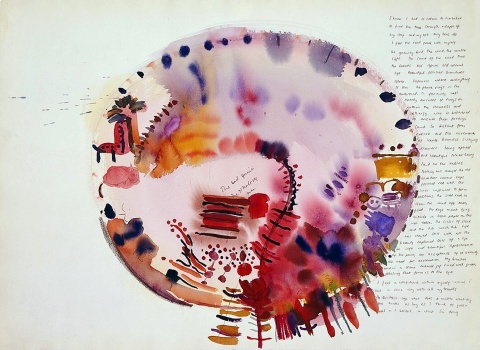 January 06
January 06
A parable on the state of the Jewish mythic world after my hard drive crashed
by Rabbi Zalman Schachter-Shalomi
p. 2 of 2
And there were different alternatives on how to do that. Amiga, Atari - there were many systems that tried to gain ground within Judaism, but eventually went their separate ways. Yet we remained faithful, staying with MSDOS on our PC clones, added Gaonic enhancements, database managers like the Shulhan Arukh, theological spreadsheets to Guide the Perplexed, Midrashic word processors, capable of making a variety of PARDES formats.
Taking the files from the past and installing them in the new environment became increasingly easier. Luckily, Windows 3.1 could be patched on to MSDOS and that still was Kosher. This is how Orthodoxy has managed to claim that it made only an update (hiddush) and not a change (shinnui). And look what riches it has produced! ArtScroll alone has given us access in English to immense treasures from the past.
But the strongest competition with the PC Clones came with the Lisa and the Macintosh, both with ever more powerful graphics learned from the Greek philosophers and artists, and with simpler user interfaces than Windows. Now between what you see and what you get there was no longer a chasm. Things were made user friendly, even if you couldn't go behind the scenes, as it were, to tinker with the code. Many PC users made the switch.

In response, most PC's became as GUI as the Mac. This is how I see the Baal Shem Tov and Hasidism. At first, there was resistance to the intuitive, embodied mouse and the other user-friendly (subject-centered, anti-authoritarian) innovations. But eventually, even the Mitnagdim, who opposed Hasidism and claimed that their new way was an unlawful deviation from the common Emmes DOS standard, sought to have a version of Windows that would open their platforms to a graphic interface. Still, there are many today who still prefer black and white to color.
* * *
Today I can do so much with my computer, that each time there is a crash, I face a Hurban, a destruction and a rebuilding. And each time I upgrade, with the new system installed and more memory added, there comes the work of sifting through the backups to see which of the old files are needed on the new drive, and which are to be kept as backup archives, no longer relevant to what comes next. I need to decide which of the old text files will be of use to me. I need to make a birrur hanitzotzot, a sorting of the sparks and releasing them from their qlippot, their shells. I have to keep my virus alert on to keep from contaminating the new drive. Oy... how will I get all the lost addresses back, and the e-mail contacts. I have to start some things from scratch.
I see in the Holocaust the most recent crashing of our hard drive. Since that time we have all been frantically rebuilding the old files, some insisting that we restore our system to the standard of the old pre-holocaust motherboard, others willing to update as long as they maintain at least the semblance of still using the EmmesDos. What file-management system should we use? Which files can we no longer open -- and which do we not want to open?
In Jewish Renewal we have opted for the RISC (Reduced Instruction Set Computing) processor. It offers a simpler, more intuitive and user friendly interface, one that is graphic and allows for right brain lateral and fuzzy thinking. It's a system that gives you fewer error messages. But RISC is risky, as it lacks the ability to understand many of the old files and thus may be unstable.
And there is always the danger of shevirat hakeilim when a file that is too large for our computer crashes our system. We need to periodically upgrade if we want to load in the files of Kabbalah, as our email clients can be compromised by large attachments. We need Adobe and other cross-platform software to read files from other religions, because the formatting is lost if we simply cut and paste.
And now there is open source -- Linux and other operating systems that might provide a system that is accessible to all, and which does not give too much power to Bill Gates and his cronies. Of course those in power resist this change, as it threatens their hold on the computing universe. They force us to use their word processors, their email programs, as a way of keeping us within the Windows fold. They make it difficult to operate with a different standard, even though their system still crashes more. So only a few on the fringe use Linux, with their new and still-awkward desktop software. But perhaps somewhere in the future, there still waits a global standard UNIX. On that day the peaceable Kingdom will have arrived, all sharing one standard for global communication and compatibility. Bimheir'a b'yameinu.








